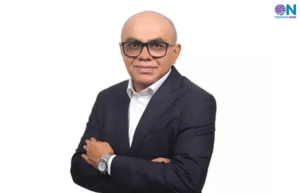Plaksha University & Tabreed India Collaborate on Innovative Energy Storage and Cooling Solutions for Sustainable Campus Living

Plaksha University and Tabreed India have joined forces to establish a unique initiative—a living laboratory—to assess various energy storage methods and their integration into a smart microgrid on campus. Initially, the focus will be on combining innovative phase change material (PCM)-based thermal energy storage with solar power in a hostel building. The goal is to reduce residential cooling energy consumption and reliance on the grid.
In a game-changing move for South Asian university campuses, Tabreed India will manage Plaksha’s existing cooling systems under a Cooling as a Service (CaaS) agreement. They aim to boost energy efficiency and ensure reliability levels exceeding 98%. Alongside investigating thermal storage, Plaksha will trial consumption-based billing to encourage behavioral changes among hostel residents.
Sudheer Perla, Managing Director, Tabreed Asia, said “We are excited to partner with Plaksha University for a project that combines technology and business model innovation. Through implementing our planned innovations, we hope to demonstrate the cost and sustainability benefits of replacing battery energy storage with thermal energy storage (TES) systems, and the scalability potential of TES systems in the energy transition efforts underway. We aim to pave the way for other large university campuses, industrial parks, and Special Economic Zones (SEZs) to aspire for truly self-sufficient grid-independent campuses in the near future.”
This collaboration is part of a broader initiative involving Tabreed India, the IFC’s TechEmerge Program, and the Cooling Innovation Lab (CIL). Their objective is to accelerate the adoption of innovative cooling technologies through grant-funded trials and novel business models. The setup will showcase how to tackle the challenges of renewable energy variability, which made up 70% of India’s new generation capacity in 2023, and rising nighttime cooling needs. By doing so, it aims to reduce reliance on conventional, expensive, and less eco-friendly battery storage systems, moving closer to a sustainable vision for grid-independent buildings, campuses, and communities.
Vishal Garg, Professor and Director, Indorama Ventures Center for Clean Energy, Plaksha University says: “We are committed to leading the transition to sustainable energy through cutting-edge research and comprehensive educational programmes. A significant challenge in achieving our decarbonisation goals is the energy consumption in residential cooling. We believe that thermal storage, in combination with district cooling, holds great potential to overcome this challenge. To realise this potential, extensive research is necessary to develop innovative technologies, effective business models and supportive policies that also consider human-centric design and behavioural factors. Our collaboration with Tabreed India is a crucial step towards initiating this essential research”.
















